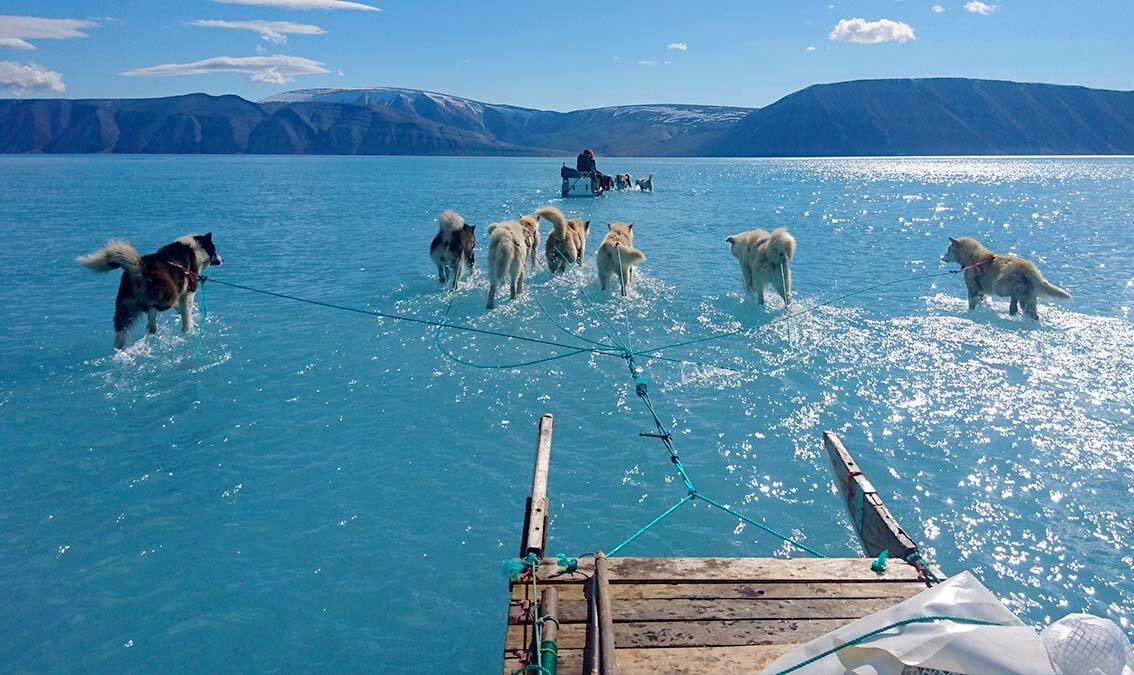Online course offers free Arctic climate change education
Heather McFarland
907-474-6286
Nov. 9, 2021
Climate change is one of the greatest challenges of our time, and no place is experiencing more extreme impacts than the Arctic. The University of Alaska Fairbanks is making it easy for people globally to gain a basic understanding of climate change issues in the circumpolar North through a new massive open online course.

Sled dogs run through meltwater in northwestern Greenland.
The MOOC, Climate Change in Arctic Environments, is free, with the option to pay for a certificate of completion. Enrollees will learn from leading scientists and experts about modern climate science and the impacts of change across atmospheric, marine, terrestrial and human systems.
“We hope this resource will be useful in a variety of settings, from teachers using individual videos for science or humanities classes to policymakers or reporters needing background knowledge for decision making or stories,” said Mike DeLue, science communicator at the UAF Alaska Climate Adaptation Science Center and the project coordinator for the MOOC.
Well-known climate scientists Rick Thoman and John Walsh, both from the UAF International Arctic Research Center, shaped the course by bringing together over 30 experts from across the Arctic.
The course is divided into a series of eight- to 10-minute videos that provide an overview of the state of Arctic climate change as it relates to topics such as sea ice, glaciers, fish, birds, Indigenous knowledge, international policy and more.
Paid participants gain permanent access to the course and can proceed at their own pace. Those accessing the course for free have four weeks after they register to take the course or download the videos.
This MOOC is part of AlaskaX, free online courses from world-renowned experts within UAF that allow students to study anywhere and at any time.
ADDITIONAL CONTACTS: Mike DeLue, mdelue@alaska.edu; John Walsh, jewalsh@alaska.edu; Rick Thoman, rthoman@alaska.edu
058-22


